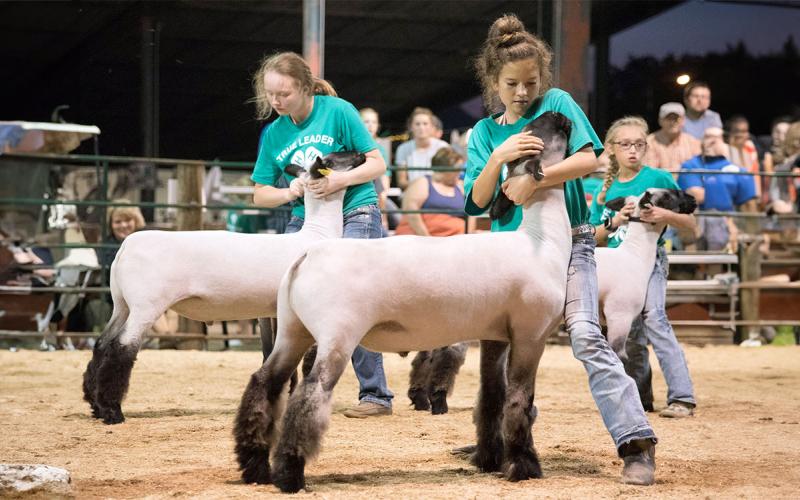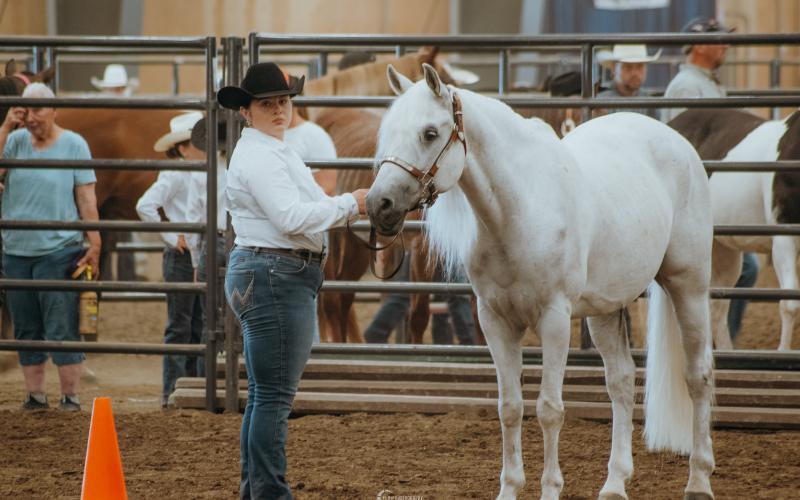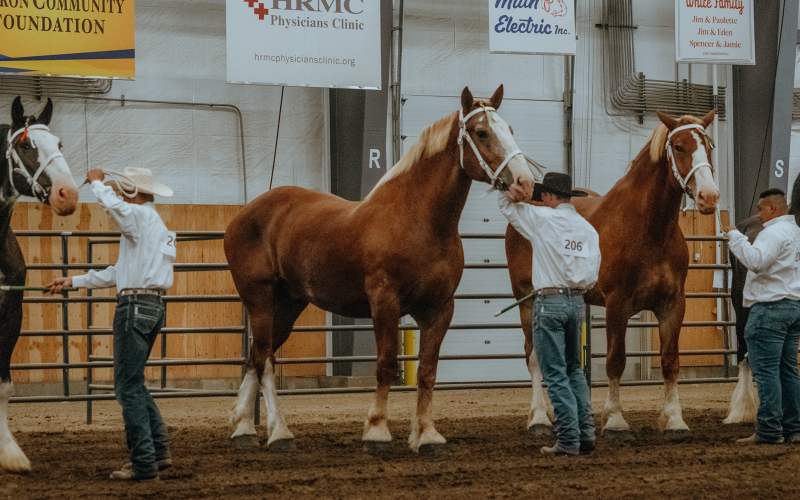Originally written by Kasee Hieb, former SDSU Extension State 4-H Agri-Workforce Coordinator. Updated by Sami Nordmann, former SDSU Extension 4-H Livestock Program Manager.
Rationale
4-H Youth Development must place an importance on developing “youth experience” versus “contest participation and competition.” It is important to build the framework of design in order to develop the highest level of success for our youth.
Foundation
Animal projects are an important aspect of the 4-H Program. To place emphasis on “youth experience,” the following objectives outline animal project purposes beyond event management to include youth development principles. Long considered a model program for youth to experience American Agriculture, animal projects have moved beyond animal husbandry practices to include intense scrutiny as part of the food supply feeding the world. We have a responsibility to collaboratively move to the larger intent of every 4-H event; 4-H Youth Development.
Purpose of 4-H Animal Projects
The South Dakota 4-H Youth Development Program defines the following objectives for the basis for “youth experience” with their animal project(s).
- Objective #1: To promote personal growth and development by providing an educational experience for youth that emphasizes belonging, independence, generosity and mastery through the pathway of animal projects.
- Objective #2: Animal projects assist youth in developing life skills. Decision making and planning are keys to building awareness and following through to project completion. When youth take responsibility for these aspects, they receive a more complete experience that prepares them for the future.
- Objective #3: Animal projects build character through experience in a competitive environment. Positive interactions with mentors and other participants allow for exhibitors to increase their knowledge of recommended practices and procedures while building tolerance for other opinions.
- Objective #4: To teach youth proper animal husbandry practices and spark career interests. Caring, feeding, fitting and exhibiting animals allows youth to gain experience with animal projects. Necessary paperwork assists participants to increase the well-being of animals while understanding ethical and safe practices for human consumption.
County & State Animal Projects
County and state animal project events will use the above objectives to move forward in 4-H Youth Development. This will provide the best array of involvement and participation in order to provide 4-H Youth a positive “youth experience.”
Methods
The message of 4-H Youth Development does not change, but the methods that drive the program forward often need to change with the times. The strategies proposed in this document may bring specific questions, but consistency is the key for implementation.
State Fair 4-H Livestock Requirements for Participation
- DNA collection is required for all market animals (beef, meat goats, sheep, and swine).
- All animals must have a proper form of identification (i.e. tattoo and/or ear tag). Identification methods vary by species. Please visit the Animal ID and Ownership Guide for specie-specific identification methods.
- All livestock exhibitors are required to complete an approved Youth Livestock Literacy event.
Direct Action
- Affidavits are available for unofficial use.
- The unofficial affidavits provide a tool for exhibitors when collecting the needed information for animal entry into 4HOnline. Data that is collected on the unofficial affidavit correlates directly to the animal identification documentation entered in 4HOnline.
- 4HOnline data entry for 4-H animal identification is the exhibitor’s responsibility.
- It is the exhibitor’s responsibility to ensure registration is completed accurately before the deadline of June 1st at 11:59 p.m.
- 4-H Youth Program Advisors have a responsibility to ensure that 4-H youth/families in their county(ies) have the resources available to enroll online. We recognize not all families have computer and/or internet access consistently available. Also, some 4-H youth/families, particularly those new to the program, may not be comfortable entering their information on their own. Mentorship to 4-H youth/families should be provided during the enrollment and entry season. This can be in the form of offering open enrollment times at the county office and/or other central locations, offering enrollment events with 4-H clubs, offering opportunities for 4-H youth/families to schedule times to meet with you individually, or alternative options that may work better. Members of the South Dakota 4-H Team have the responsibility to provide high quality customer service to youth and families served.
- Youth are permitted to lease an animal project if necessary. Please visit the Animal Lease Form and Requirements sheet for more information.
- Registration papers are the exhibitor’s responsibility.
- If an exhibitor does not upload a registration paper by the entry deadline, that animal will be entered in the commercial/crossbred division for exhibition.
- Physical copies of registration papers are required for animal check-in at the State Fair. It is recommended that exhibitors have the original paper copy of the registration paper in hand during check in at both the county event and State Fair. This is recommended practice for any animal exhibition.
- Registration papers must reflect ownership as of June 1. In leasing situations, the registration paper must be in the animal owner’s name and proper documentation of the lease agreement must be uploaded.
- Deadlines are essential and will be strictly enforced.
- If youth miss the animal entry deadline and still wish to compete, they are required to complete the “Missed Deadline Request Form” in order to be considered for exhibition at the State Fair. Each request is subject to approval from the 4-H Livestock Program Manager. If approved, the exhibitor/family will be required to submit a late fee.


